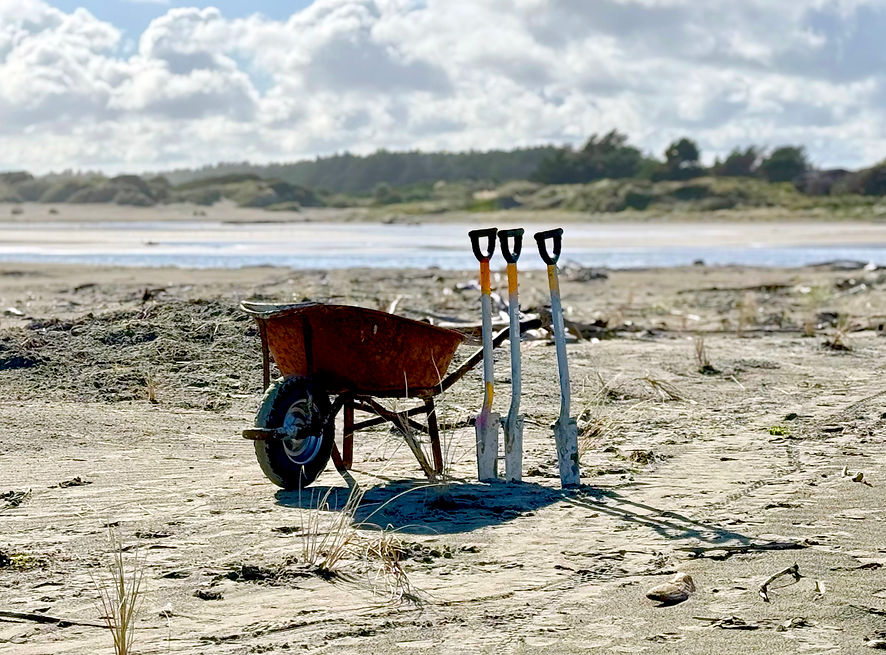
Unpredictable weather postpones community working bee again*
* ...AND AGAIN... AND AGAIN: Wow, what a spring it's been so far. Wild, windy and wet! Who would have thought lol.
We apologise on behalf of the weather for the series of delays to our much anticipated planting days. Very disappointing, as it is important to get stuff bedded in and well established during early spring so that it has the best chance of survival over a long, dry summer. Coastal environments can be tricky!!!
As always, keep an eye out here for further updates, or go to https://www.facebook.com/WaikawaBeachEnvironmentGroup/ and other community facebook pages.
Our May 'Working bee'
In May this year, we invited members of the Waikawa Beach community, and visitors, to a weeding and planting day on the beach. The weather didn't let us down and we not only had a very enjoyable time and with all the extra help, we achieved far more than we could have hoped for. As a working bee it was a great success, but more than that, as a day to get together with friends and family and meet new people, it was a lot of fun. Our local newspapers sent reporters to record it and we received good coverage from the Horowhenua Chronicle and the Otaki Today.
This work is very important so we were blown away by the support we got from all who supported us. Eager volunteers included young and old, mums and dads... and plenty of kids. It was a lively day, full of welcome enthusiasm and enjoyment. Who knew that picking up a spade and digging holes in the sand could be so much fun? Well, the kids did I suppose.
The next 'Working bee'
Thanks again to all who have taken part in this project so far. Please look out for updates on Manakau and Waikawa Beach community Facebook pages and the Waikawa Beach community notice board for the next weeding and planting day. This is likely to take place on the northern walkway of Reay Mackay Grove, and is usually scheduled from 9.30 am 'til midday.
We hope to see you there.
Photo kindly provided by Jan Jordan.

Come and help us,
*if the weather allows
These six key words describe our 'reason for being'. They are drawn from our values and form the basis for our foundational pillars. They are the fundamental attributes of our group and remind us every day of our commitment to the diversity of our environment and the unique community we are fortunate to live in. They form the basis of our key messages to all of our stakeholders, whether they be visitors, professionals, scholars, public servants or school children.
